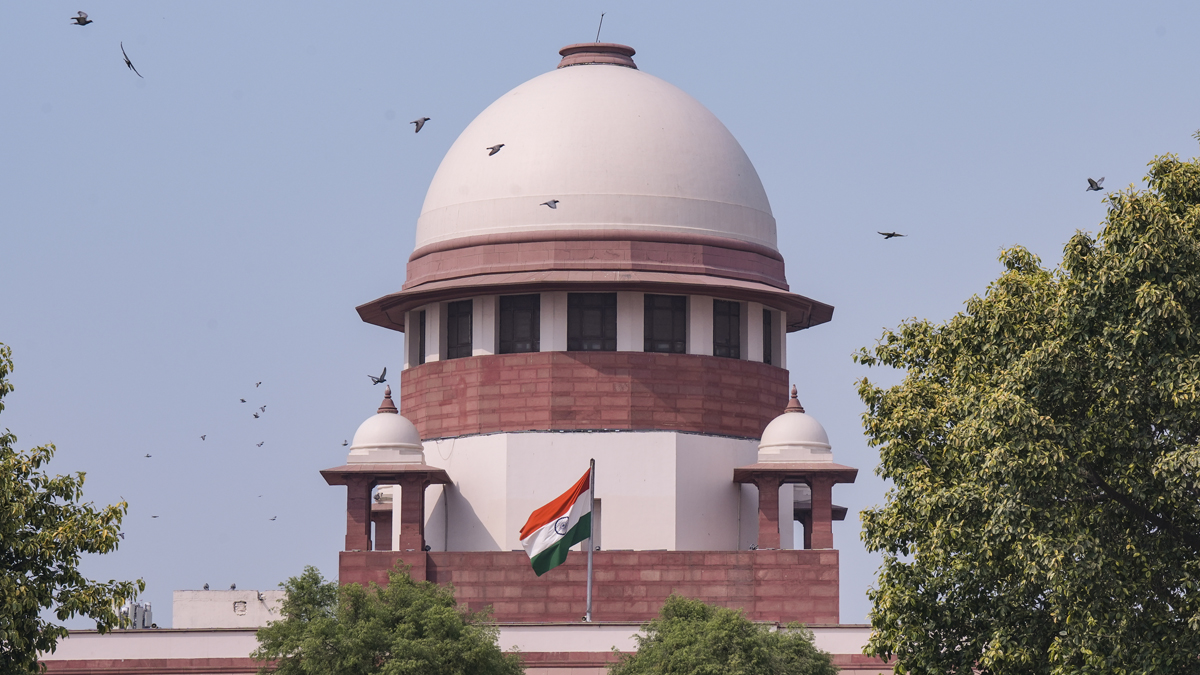Cash at judge's house: Can Justice Varma’s inquiry pierce the veil of judicial secrecy?
 New Delhi: View of the Supreme Court of India, in New Delhi, Wednesday, April 16, 2025. The apex court has begun hearing on a batch of petitions challenging the constitutional validity of the Waqf (Amendment) Act, 2025. (PTI Photo/Manvender Vashist Lav)(PTI04_16_2025_RPT222B)
New Delhi: View of the Supreme Court of India, in New Delhi, Wednesday, April 16, 2025. The apex court has begun hearing on a batch of petitions challenging the constitutional validity of the Waqf (Amendment) Act, 2025. (PTI Photo/Manvender Vashist Lav)(PTI04_16_2025_RPT222B)
With the Supreme Court of India receiving the three-member in-house committee report about the investigation into the presence of partially charred currency notes discovered at the official Delhi residence of former Delhi High Court judge, Justice Yashwant Varma, questions have been raised about whether this report would reach its conclusion, unlike the past reports over the years or not.
Though the top court has affirmed that a formal communication will be issued outlining the measures undertaken by the Chief Justice of India, Sanjiv Khanna reportedly asked Justice Varma to respond by Friday.
Justice Khanna retires on May 13 after completing his short tenure of six months.
Till 2025, eight in-house committees have been constituted so far by the respective Chief Justice of India. However, as the reports submitted by these committees are not made public, their internal procedures and the basis for their findings remain largely opaque.
The in-house inquiry mechanism, established following the Supreme Court’s 1995 ruling in C. Ravichandran Iyer vs Justice A.M. Bhattacharjee, was designed to address judicial misconduct.
In 2008, the then Chief Justice of India K.G. Balakrishnan had constituted an in-house committee to look into allegations related to the cash-at-door scandal involving Justice Nirmal Yadav of the Punjab and Haryana High Court. Central Bureau of Investigation (CBI) was granted permission to prosecute Justice Yadav only in March 2011. In March 2025, a CBI court acquitted her due to insufficient evidence.
In 1991, Justice V. Ramaswami became the first judge to face removal proceedings under the Judges Inquiry Act. In 2003, an in-house committee cleared three judges of the Karnataka High Court of allegations linking them to a sex scandal. A separate in-house committee later found merit in a sexual harassment complaint filed by a former intern against Justice A.K. Ganguly, though Justice Ganguly denied the accusations.
In 2018, then Chief Justice of India Dipak Misra recommended the removal of Allahabad High Court judge Justice S.N. Shukla to the Prime Minister, following an in-house panel's finding that Shukla had issued favourable orders to a private medical college.
In 2019, an in-house inquiry into sexual harassment allegations against then Chief Justice of India Ranjan Gogoi cleared him of any wrongdoing.
While the Judges Inquiry Act provides a formal removal process, its rare invocation underscores the in-house mechanism’s critical role—and its shortcomings.
India